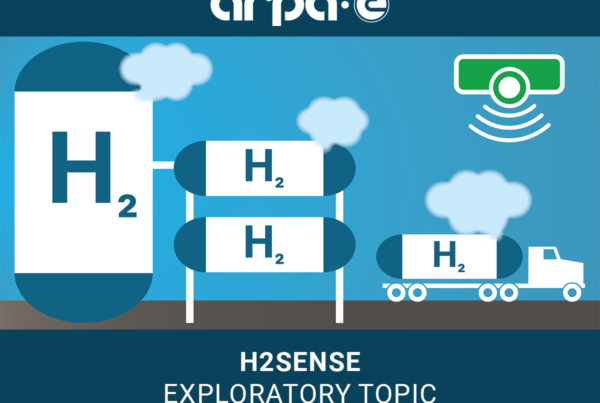
TAIPEI– Delta Electronics, Inc. (hereinafter referred to as “Delta”), a global leader in power and thermal management and provider of IoT-based Smart Green Solutions, today announced the signing of a long-term collaboration agreement, which includes technology transfer and licensing, with Ceres Power Limited, subsidiary of London Stock Exchange-listed Ceres Power Holdings plc (hereinafter referred to as “Ceres”) to access Ceres’ Hydrogen energy stack technology portfolio for approx. GBP43 million. Ceres is a global leader in solid oxide fuel cell and electrochemical technology. Through this partnership, Delta expects to integrate Ceres’ energy stack technology with its own industry-leading power electronics and thermal management technologies to develop solid oxide fuel cell (SOFC) and solid oxide electrolysis cell (SOEC) systems for hydrogen energy applications, with production expected to start by the end of 2026, with strong ambition for future scale-up. These SOFC and SOEC systems are expected to enhance the capabilities of Delta’s green solutions for a myriad of sectors, such as, chemicals, energy, transportation, steel and more.
Ping Cheng, Delta’s CEO, said, “Hydrogen has high heating value and zero CO2 emission potential characteristics, and thus, will play a crucial role in the global transition towards net-zero. Moreover, Hydrogen SOFC systems boast reliability and high efficiency in electricity generation, making them ideal for micro-grid applications, distributed power systems, mission-critical facilities, such as data centers, semiconductor production lines, and other advanced manufacturing. SOEC systems will also play a key role in the chemical, utilities, and steel industries as they are adopting green hydrogen to replace fossil fuels in their manufacturing processes and operations. By leveraging Ceres’ expertise in solid oxide stack technology and our industry-leading technologies in power and thermal management, Delta will enrich its infrastructure solutions portfolio by delivering high-efficiency SOFC and SOEC systems for our customers worldwide, hence, further contributing to global carbon reduction targets.”
Phil Caldwell, CEO of Ceres added, “It’s great to announce a new partnership today with Delta, a company with worldwide expertise in mass manufacturing, power electronics and system integration. We believe Delta can deliver efficient clean hydrogen solutions for its customers utilising both our SOFC and SOEC technologies. Green hydrogen has a key role to play in delivering a more secure and sustainable future energy system and today we take this first step towards what promises to be a strong collaboration with Delta to accelerate the industry globally.”
In addition to licensing key energy stack technologies, Delta will also establish a “Net-zero Science Laboratory” at its Tainan manufacturing complex to develop cutting-edge zero-carbon technologies, including hydrogen energy, and to enrich its own R&D capabilities in related application fields. From 2024 to 2026, Delta expects to carry out product development and production line integration at its Tainan plant with Ceres’ engineering service support. Production for the aforementioned technology is expected to start by the end of 2026. Delta expects to further integrate its diverse smart energy solutions, including microgrid applications and energy management platforms, with these hydrogen energy systems to provide a more comprehensive and flexible low-carbon infrastructure offerings to its customers.
Ceres’ stack technology is the core for both SOFC and SOEC. In the application of SOFC, it can generate electricity, water and heat by reacting oxygen with hydrogen or methane. Its power generation efficiency, which is around 60% and can even reach 85% with a heat recovery system, is significantly higher than the efficiency of centralized gas-fired power generation units, which are around 40~50%. As SOFC can be built near places with electricity demands, it is able to avoid power transmission loss and other unexpected unstable factors during the transmission and distribution process. Hence, it’s highly suitable for facilities that require stable power.
SOEC technology produces hydrogen up to 25% more efficiently than incumbent low temperature technologies particularly when thermally integrated with industrial processes. With electricity coming from renewable sources, the technology can produce green hydrogen, which would be optimal for the decarbonisation of various industries, including steel and chemical, which are seeking to replace the fossil-based materials in their processes to ultimately reduce carbon emissions. Green hydrogen is also one of the key ingredients to produce carbon-neutral e-fuels, with the support of carbon capture technology for its carbon sources. E-fuels are alternative energy sources for ICE vehicles, ships and aircrafts under the net-zero transition.
Ceres, headquartered in Horsham, the UK and listed on the London Stock Exchange since 2023, has been perfecting its solid oxide technology for more than 20 years, with an industry-leading position in fuel cell and electrochemical technology. Ceres operates a licensing business model.
With global energy transition trends, it is expected that the global demand for hydrogen will reach 223 Mt in 2030, and 630 Mt in 2050*. Hydrogen applications will play a crucial role in achieving net zero targets.
Read the most up to date Fuel Cell and Hydrogen Industry news at FuelCellsWorks




